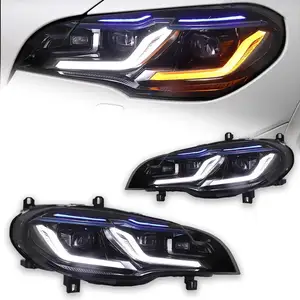Popular in your industry















Top categories
About bmw engine sensors
Understanding BMW Engine Sensors
Engine sensors are integral to the modern BMW, playing a crucial role in the vehicle's performance and maintenance. Among these, the BMW camshaft position sensor and BMW crankshaft position sensor are pivotal in managing engine timing and ensuring efficient fuel consumption. These sensors provide real-time data, enabling the engine control unit (ECU) to make precise adjustments to ignition and fuel injection timings.
Types and Functions of BMW Engine Sensors
The variety of sensors within a BMW engine includes the n54 camshaft position sensor, which monitors the position of the camshaft, and the n54 crankshaft position sensor, which tracks the speed and position of the crankshaft. Both are essential for the engine's electronic control system to synchronize the fuel injection and ignition processes. The BMW oil level sensor ensures the engine operates with the correct oil volume, safeguarding against potential engine damage due to low oil levels.
Applications and Advantages of Engine Sensors
In the realm of safety and maintenance, sensors like the e46 crankshaft position sensor and e36 crankshaft position sensor are indispensable. They contribute to the vehicle's operational integrity by preventing situations that could lead to engine misfires or poor performance. Additionally, the n54 o2 sensor, responsible for measuring the oxygen levels in exhaust gases, is crucial for maintaining optimal air-fuel ratios, thus reducing emissions and improving fuel economy.
Features and Materials of BMW Engine Sensors
BMW engine sensors are designed with durability and precision in mind, utilizing materials that ensure longevity and resistance to harsh engine conditions. For instance, the n52 eccentric shaft sensor is built to provide accurate readings that are critical for valve timing. This sensor, like others in the BMW suite, is engineered to withstand temperature fluctuations and chemical exposures typical within an engine bay.
Choosing the Right BMW Engine Sensors
Selecting the appropriate sensor, such as the e46 camshaft sensor for a specific BMW model, is vital for maintaining its performance. Compatibility and accuracy are key factors when considering a replacement. It is important to match the sensor to the engine's specifications to ensure seamless integration and functionality.
Installation and Maintenance
While the installation and maintenance of BMW engine sensors should be handled by professionals, understanding their role and symptoms of failure can aid owners in identifying issues early. Regular checks and timely replacements of components like the crankshaft sensor e46 can prevent more significant engine problems and extend the vehicle's lifespan.























